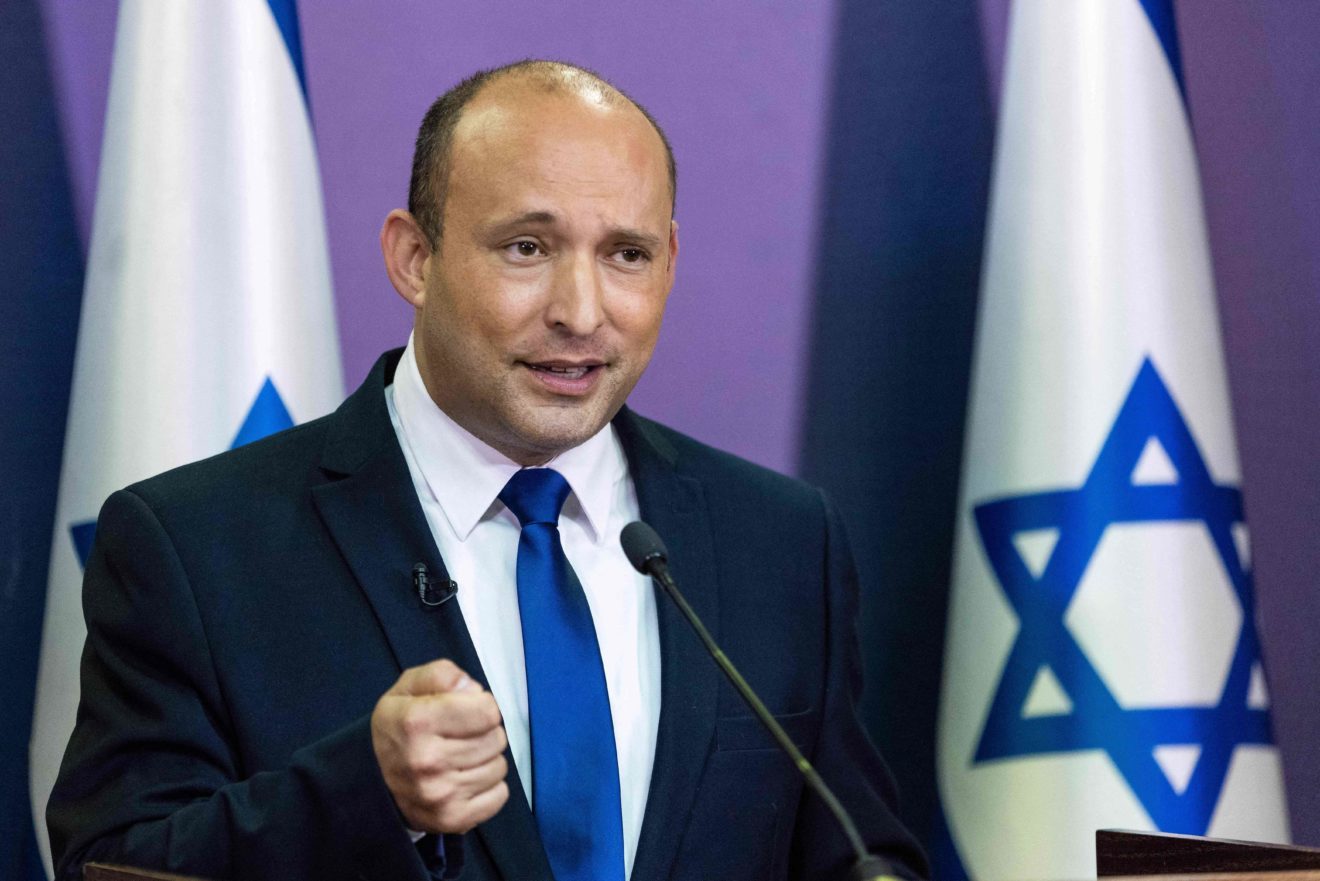Tel Aviv is a vocal opponent of the restoration of the 2015 nuclear accord.
Israeli Prime Minister Naftali Bennett called on world powers to take a hard line against Iran during the current round of Vienna talks which aim to revive the Joint Comprehensive Plan of Action [JCPOA].
“I call on every country negotiating with Iran in Vienna to take a strong line and make it clear to Iran that they cannot enrich uranium and negotiate at the same time,” Prime Minister Naftali Bennett said Sunday, as quoted by the Voice of America [VOA].
Bennett added that “Iran must begin to pay a price for its violations”.
Last week, the Israeli prime minister called on world powers to immediately halt talks in response to a report released by UN’s International Atomic Energy Agency [IAEA].
The report stated that Iran had started enriching uranium using advanced centrifuges at its Fordow Fuel Enrichment Plant [FFEP] despite the resumption of Vienna talks.
“Iran is carrying out nuclear blackmail as a negotiating tactic, and this should be answered by the immediate halt to negotiations and the implementation of tough steps by the world powers,” said Bennett, as quoted by his office in a call on Thursday with US Secretary of State Antony Blinken.
Regional rival Israel has been accusing Iran of developing nuclear weapons over the past decades in a bid to maintain its military power in the region while continuing to occupy Palestine.
Diplomats returned to nuclear negotiations Vienna on 29 November following months of delay, attended by diplomats from the p4+1 – China, France, Russia, the UK plus Germany.
US says Iran’s proposal’s ‘not constructive’ ahead of eighth round of talks this week
The indirect US-Iran talks initially started in the Austrian capital in April this year to revive the 2015 nuclear accord, but adjourned following the sixth round in June. The talks were put on hold as Iran’s elections took place, which saw the victory of Ebrahim Raisi.
Iran returned to negotiations in effort to lift the crippling sanctions imposed on the Islamic Republic since former US President Donald Trump withdrew from the JCPOA in 2018.
Western powers have been calling on Iran to decrease its nuclear activity, especially after it proceeded to enrich uranium at 60% purity in response to a series of attacks while the first rounds of Vienna talks were taking place earlier this year.
Tehran blamed the assaults on Israel given its opposition to the restoration of the 2015 accord and keenness on maintaining economic sanctions on the Islamic Republic.
More recently, Iran accused Israel of “trumpeting lies to poison” the latest round of nuclear talks in Vienna after a report written by a Tel-Aviv based reporter for Axios claimed Tehran has ramped up its uranium enrichment.
The report cited intelligence shared by Israel over the past two weeks with the US and a number of European allies. It claimed that Iran is taking technical steps to enriching uranium at 90%, which is the required level for developing a nuclear weapon.
“Israeli regime whose existence relies on tension is at it again, trumpeting lies to poison Vienna talks,” tweeted Iranian Foreign Ministry spokesman Saeed Khatibzadeh last week, without specifying the alleged lies made by Israel.
Those claims were also dismissed by the head of the IAEA.
“There is no 90% enrichment at the moment in the Islamic Republic of Iran. You have enrichment at 5%, you have enrichment at 20%, you have enrichment of 60%…but we don’t have any information about 90% enrichment,” said Grossi in an interview with France 24.
According to Reuters, the Iranian delegation, led by top negotiator Ali Bagheri Kani, proposed changes to the text in a draft agreement reportedly 70-80% complete during the previous six rounds of talks.
The US said Iran’s proposals were “not constructive”.
“The first six rounds of negotiations made progress, finding creative compromise solutions to many of the hardest issues that were difficult for all sides. Iran’s approach this week was not, unfortunately, to try to resolve the remaining issues,” said White House Press Secretary Jen Psaki said in a press briefing on Friday.
Washington also previously warned it would pursue “other options” if Iran does not reduce its nuclear activity. It also vowed to exert pressure on Tehran if it accelerates its nuclear programme during the current talks.
The eighth round of talks is expected to take place this week.
Follow Doha News on Twitter, Instagram, Facebook and Youtube







